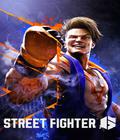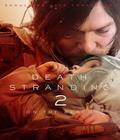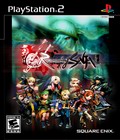
Genre: RPG
Publisher: Square Enix
Developer: Square Enix
Release Date: October 11, 2005
Buy 'ROMANCING SAGA': PlayStation 2
There are quite a few things Romancing SaGa is not.
To start off, Romancing SaGa is not Unlimited SaGa. Probably the biggest thing holding Romancing SaGa back from mainstream acceptance among RPG players is the stigma that Unlimited SaGa put on the series. Rest assured that in Romancing SaGa there are no board-game quests across confusing landscapes, you will not have to deal with a battle system that feels as if it were halfway coded in before the programmers broke for lunch and they never got back to it, and the interface was programmed here on Earth and is entirely accessible to normal human beings.
Romancing SaGa is, on the other hand, not going to be an accessible game to a lot of casual RPG gamers. (Please ignore the implication that these people are not normal human beings. I digress.) Playing this game is at first rather like drinking from the Giant Firehose of Pure Information until it comes gushing out your nose.
Not because the game has a lot of plot -- indeed, that might be the weakest part of the game, another thing Romancing SaGa is not is that it isn't plot heavy at all -- but because there's simply so much to do and no particular order you need to do it in.
Romancing SaGa is not linear. It scoffs at the very concept of linearity and it does not have a gentle learning curve. You will spend a lot of time at first wandering about the countryside, wondering if you're doing the right stuff.
All those "nots" up there, however, deserve one more added to them.
Romancing SaGa is not a bad game by any stretch. It is, however, a game that takes a lot of getting used to. As a matter of fact, given that there are a few features unlocked by finishing the game with one of the eight characters available and the tutorials keep unlocking right up 'til near the end of the game, you could look at your entire first trip through the game as just an elaborate learning process for the "real" game you'd open up for the other characters.
If you enjoy long RPG experiences, this is the kind of game that comes along once in a lifetime. If you're an obsessive-compulsive who needs to establish utter dominance over a game by completing everything, you may well be here the rest of your life. Pack a lunch.
Graphically, SaGa looks pretty astounding. The "sketch motion" cut scene system is back from Unlimited SaGa, and it's used pretty sparingly. This means that occasionally you'll get a rather Impressionist artwork-style cut scene at certain key plot moments. Outside of cut scenes, the world is sharply rendered and quite gorgeous. The one questionable aspect here is the character models, which, to say the least, take some getting used to. Picture something close to the big-eyed, big-headed, disproportionate Final Fantasy 9 characters and you have the right general idea, only more so. They look a bit dollish, to be more accurate about it. After some time with the game, they fit naturally into the style of the world around them, but it can be jarring to initially see them move and act.
Audio is a bit of a mixed bag. The music in this game is flatly incredible, with a techno-Celtic feel at times. I'd never before used the phrase "rockin' out to a harmonica solo" away from a Blues Traveller CD, but that's what the music here made me do. Sound effects are much less impressive, though. There only seem to be a handful that play for swords and clubs swinging and making contact. Right in the middle is the voice acting. Some is great. Some is hideous. Some voices start out hideous and eventually become great as the actor finds his/her place in the role. (For example, at first Claudia the ranger girl is a bit monotone and quiet. Later, the voice actress seems to realize this aspect of her personality and begins to have fun with it. Witness her on a ship invaded by the undead, informing the passengers, "There is a vampire mummy on board. Please remain calm and disembark in an orderly fashion.")
The plotline here is fairly basic and straightforward, as noted above. Your average bargain-basement Hero of Light, Mirsa, went off 1,000 years ago and sealed away one of the three Dark Gods, Saruin. If anyone brings together all 10 of the Rings of Pow... uh, excuse me, Fatestones, Saruin will rise again, more powerful than before. Obviously, it would be a good thing if one of the heroes of the side of Light got ahold of those things instead of the followers of Darkness, yeah?
That's where Romancing SaGa first shows that it isn't like other console RPGs. None of the selectable main characters have any particular interest at first in collecting the Fatestones and beating Saruin back into his hole. Some, like the brooding swordsman Gray, are just trying to make some money and test their blades against monsters. Some, such as the wandering entertainer Barbara, are more interested in the spirit of adventure. Pirate captain Hawke is out to redeem himself in the eyes of his outlaw brethren after being betrayed by a rival captain, while Albert the young nobleman is just trying to find his sister, separated from him after a monster attack.
Each of the various selectables might have different reasons for being out in the world, but it's all the same world. They're all recruitable by each other, you can form a party composed of whomever you like out of the group. You can also pick up any of the many other side characters hanging around the pubs of the world, and you can occasionally locate character-specific or hidden characters as well. To fill out your party until you've gotten a crew rounded up, numerous "mercenaries" appear until midway through the game. These are weaker, more basic and identity-less fellows whose only purpose is to be a placeholder in your party until you come upon a real character to round out the roster.
So you can gather together pretty much anyone you like. What do they do? Again, pretty much anything you like. Romancing Saga's skill system gives you rather a lot to do while you're out adventuring. While in town, you simply purchase (using jewels) and equip an ability, such as herb gathering or chest finding. Then, while you're out in the field, occasionally you'll get a notice that, say, a hidden chest is nearby. Tap the circle button, and your character makes a skill check, and if you have a high enough skill level, you'll collect some treasure. There are a number of ways to interact with the world, and they're all pretty useful. Even the ability to approach monsters and trade with them has its uses, and if you're sick of random battles, you might want to go with stealth-based abilities. Each monster appears on the walking-around landscape, so you can simply edge around them if you're sneaking.
If you do choose to fight, though, you'll be dropped into the battle system. This is where all of the SaGa games have traditionally been most shiny, and this one is no exception. Romancing SaGa uses traditional menu-based combat, save for one particular difference. Special attacks are learned on the fly; your character will simply "spark" a new technique and proceed to whack the heck out of a beast with it. There are, I believe, around or over 20 moves for each type of weapon. There are several types of weapon, at least eight which I can think of offhand (bow, long sword, short sword, polearm, axe, unarmed, staff, mace...). That's quite a few moves indeed. These attacks grow stronger and more varied as you buy additional levels in your weapon skill, which you can do at the same place you buy other skills: in town.
If you toss in the fact that every special attack can chain-combo with most of the other special attacks, or come off as a "Surge" (an extra-strength version) or a "Reverse" (a more easily comboed version), you can imagine that this game has a truly remarkable number of ways to put some damage on your enemies even before we get to the magic system, which we aren't going to do, because that's actually comparatively dull. (It is in there, however, and spells will combo right along with physical attacks.). Even more combat goodness comes in the form of Vortexes, certain combinations of moves which form holy symbols of the gods right there on the battlefield and often do quite massive damage. As if that weren't enough, the gods themselves will rarely come down and stage divine interventions, doing anything from full-healing your party to nuking the enemies off the face of the planet. Every time you think you've pretty much seen everything that can be tossed around in battle, Romancing SaGa whips out a new surprise.
"Wait a moment!" I hear you cry, because the voices in my head occasionally do these things to me. "Why would you be out there battling monsters anyway if all there is to do is wander around picking herbs?" As a matter of fact, there are more quests in Romancing SaGa than one can shake a stick at. Picking up these quests is almost a matter of coincidence; you'll stumble upon them in pubs, in the library, or in the middle of a street as you hear a rumor from a townsperson about someone else who's having trouble. Often, you'll simply have to infer that there's a quest waiting for you. No one will specifically tell you "A horde of slavering monsters is totally kicking our butt and they're coming from that cave to the west!" You'll have to look around for the cave and decide that the cultists living there is probably the reason why so many in the local town are dying.
Oh yes, and you can also find the Fatestones and save the world. You can do that in passing, if you like. No one will fault you for that.
Much of the game, in fact, plays out along these lines:
- Go to Town 1. Poke around. Accept Quest #1.
- Attempt to complete Quest #1.
- Recruit Character A in Town 1. Learn about Towns 2, 3, 6, and 9. Obtain Quest #2 and #3 accidentally.
- Decide to complete Quest #2 in Town 3. On your way, stop in the desert to mine for ore. Fight monsters. Find a treasure map to a hidden treasure near Town 6.
- Head to Town 6. Stumble upon a trail leading back towards Quest #1 (Y'remember Quest #1? We were doing that.) and solve it! Get reward. Head off to dig for treasure and maybe scour the countryside for herbs. On the way, you...
All of this only scratches the surface of this game, to be frank. I've not even mentioned things like the tempering system, which lets you occasionally make new weapons out of old ones or fix up cruddy found weapons to sell for cash. The thing is that Romancing SaGa can be pretty darned scary if you have no idea what you're in for. Things like the map from Final Fantasy X, with clearly marked plot points glowing with arrows pointing to them? That isn't going to happen here.
I can't fault this game for any of that, though, because - well, first, it's traditional for the series, and this is the series doing what it does best. However, the other reason I can't fault SaGa for doing what it does so well is that this game is closer in style to a Japanese RPG take on Fallout or Ultima than traditional console fare.
There are a few things I can fault SaGa for, however.
I've already mentioned the voice acting and the odd character models, which tend to put people right off the game before they've given it a true chance. I've mentioned the nonlinearity, which doesn't strike me as a downside but may peg others right in the Annoy-o-meter. One thing I didn't cover is the walking speed. You have two speeds in SaGa, slow and damn slow. The "run" is a steady ground-eating jog that takes forever to get anywhere because of the huge world around you. The "walk" is a crawl. There's no other way to put it. That's what annoyed me most about this game.
There's also the fact that simply because this is such a big and open game, you're sometimes going to walk into situations you shouldn't be in for another 20 hours of game time. Just as an example, early on Hawke finds a treasure map to the Lost Treasure of Captain Silver. You can easily get there right up near the start of the game. You can even get through the traps and tricks of the treasure cave within a few hours of starting play. It's just that there's this big dragon in the last room who will cheerfully hand your party their golden-brown butts on a platter. This can get on one's nerves, to put it lightly, and it's a hard thing for a RPG player to just turn around and walk away from. The other thing is that by doing too many quests all at once, you can lock yourself out of other quests, but I don't see this as a serious problem. There are eight characters; do those other quests next game, you perfectionist.
This, then, is Romancing SaGa, a game that might just have done better if it were a PC release, possibly hidden under the guise of an offline MMORPG-alike. Some people are going to hate it on sight, but I believe that like SaGa Frontier before it, Romancing SaGa has a welcome place in the gaming library of anyone who appreciates a completely free-roaming experience and isn't above being patient with the quirks of gameplay it holds.
Score: 8.5/10
More articles about Romancing SaGa










 Visit the vast world of Mardias in Square-Enix's Romancing SaGa. Select from one of eight playable main characters to follow through a series of amazing adventures, with the outcomes of your decision forever altering the future of Mardias. Fully customize your characters in battle with proficiencies, multi-class training, and purchasable skills and spells. Guide a party of up to five characters in battle, inviting and dismissing new warriors as you see fit.
Visit the vast world of Mardias in Square-Enix's Romancing SaGa. Select from one of eight playable main characters to follow through a series of amazing adventures, with the outcomes of your decision forever altering the future of Mardias. Fully customize your characters in battle with proficiencies, multi-class training, and purchasable skills and spells. Guide a party of up to five characters in battle, inviting and dismissing new warriors as you see fit.





















































